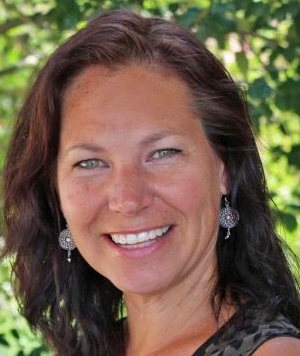Voices of U of U Health
The Power of Recreation
In American culture, there’s a tendency to take recreation for granted—or to dismiss it as something frivolous. The thinking goes that it should be limited to when we have “free time.” But recreation is imperative. It brings balance to our lives and is an important component of the human condition for health and well-being.

Research indicates that we are cognitively stimulated, more creative, energized, and relaxed with regular recreation, especially when we’re out in nature. Although we are inherently more physical when outside, we also benefit from improved psychosocial health enjoying nature. In a controlled trial which compared health outcomes of prescribed activity programs, participants who engaged in activity outdoors reported significantly lower rates of depression and anxiety than people who exercised indoors.
Why do Americans seem to value work over play in a restorative environment? Generation after generation has been raised with the guiding philosophy that hard work is our most valuable contribution to society. Yes, pride in one’s work is admirable, but we should incorporate recreation and leisure as an important component in our lives.
Utah's Renowned Outdoors
Utah has a proud history of valuing recreation for economic development and well-being. It is the first of many states to have an Office of Outdoor Recreation under the direction of the Governor’s Office of Economic Development; it is home to five national parks, 43 state parks, and millions of acres of public lands; and it is world-renowned for its skiing, mountain biking, and other outdoor pursuits.
Tech companies, many located in Silicon Slopes, use the state’s recreation resources as a recruitment tool, and many transplants specify the outdoor recreation opportunities here as their reasons for staying. There’s a culture in Utah that recreation is important, but it’s so embedded in the lifestyle we don’t really notice or appreciate it for the value it brings to our quality of life.

We tend to be overly defined by our jobs. When we first meet a new person, we tend to ask them “What do you do?” as though learning what they do vocationally is a good way of getting to know them. Understanding what we do for recreation is far more valuable at communicating an identity or personality.
Workload & Leisure
For people in the health sciences, or up at our hospitals, the Bonneville Shoreline Trail is right there. So easy and convenient, and a great opportunity to connect with co-workers or the friend who works in another department who maybe you don’t see enough. Why not arrange to go for a walk outdoors at least once a week? Our Sugar House Health Center overlooks Sugar House Park, one of the largest, greenest outdoor spaces in Salt Lake City. It’s another amazing spot for clinical employees to take a break and look at mountain vistas while connecting with their friends and colleagues.
Researchers in the Department of Parks, Recreation, and Tourism have been studying the way recreation affects our health and wellness, in many dimensions, for decades. Not only does a balance of work and recreation improve our physical and mental health, but it also positively influences our occupational, emotional, and social health as well. Recreation—especially in nature—helps our brains relax and stimulates us cognitively, which results in greater productivity at work. Our brains also release more serotonin, a happiness hormone, which improves our moods, relieves stress, and makes us better colleagues, friends, and family members. In addition, recreation programs in a community can drive overall health outcomes, improve quality of life, and promote more inclusion by allowing us to get to know neighbors who are from different cultures or have different perspectives in a non-threatening environment.
Plan Your New Year
Over the holidays, it is tempting to catch up with friends and family over food or drinks (or both). This year, take the opportunity to connect one-on-one with someone on a walk around the neighborhood or in a local park. You will actually connect more with someone while being active and outside than by just sitting across a table from them.
I’m not pretending the air quality in Salt Lake Valley doesn’t sometimes present a barrier. If you are not able to get outside when the air quality is bad, bring the outside in with house plants. There is evidence that having greenery indoors can improve well-being. During the holidays, having a tree or garlands around is a natural fix for better indoor air quality. Many indoor plants are easy to care for and can withstand some neglect if you forget to water as I do. Succulents and any number of evergreen perennials are a great place to start.

But starting with any of these ideas is key. If you have some end-of-year time off from work, use it for outdoor recreation first. But second, make a plan for regular breaks away from your work routine in the New Year. And don’t make it a hollow resolution. Invest real time in your health in 2022 by recreating. Your body and mind will thank you.
